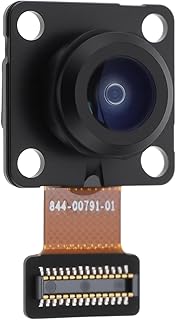Virtual reality (VR) is revolutionizing education, particularly in the field of infection prevention and control (IPC). A recent study delves into the impact of a new IPC VR module on medical students’ knowledge, attitudes, and practices. The research aims to analyze how VR technology enhances IPC education and decision-making skills among future healthcare professionals.
The IPC VR module was meticulously developed through a cyclical design process, involving a prototype, first version, and final version. The immersive experience provided by VR simulations offers hands-on learning opportunities that align with established educational theories. By creating a realistic and interactive learning environment, VR facilitates deeper learning, boosts confidence, and engages students effectively.
While traditional IPC teaching methods remain prevalent, the integration of simulation-based learning (SBL) through VR is gaining traction in educational programs. VR applications in medical education have shown promise, offering standardized learning experiences and increased accessibility. The IPC VR module, tailored for medical students and healthcare professionals, was seamlessly incorporated into the existing educational curriculum.
The study compared two groups of medical students: one following the regular IPC program and the other exposed to the IPC VR module. Results indicated that students who completed the VR module scored higher in IPC knowledge assessments. Moreover, participants expressed a strong preference for the VR module, recognizing its added value in enhancing IPC education.
Feedback from students and healthcare professionals highlighted the benefits of the VR module, emphasizing its practical orientation, immersive learning experience, and interactive decision-making opportunities. Despite some reports of physical discomfort among participants, the majority acknowledged the module’s contribution to their learning experience.
The study underscores the importance of a cyclical design process in developing effective VR educational tools. By continuously refining the VR module based on user feedback and expert input, the final version successfully achieved VR-specific learning objectives. The positive outcomes of the IPC VR module demonstrate its potential to augment traditional educational practices and empower future healthcare professionals.
In conclusion, the study showcases the transformative impact of VR technology on IPC education, emphasizing the need for innovative tools to enhance learning outcomes and practical skills in healthcare settings. As VR applications continue to evolve, their integration into educational programs can offer valuable insights and experiences that traditional methods may not provide.
📰 Related Articles
- Study Reveals Benefits of E-Learning in Medical Education
- VR Enhances English Proficiency in Thai Film Industry Study
- Study Reveals Flaxseed Enhances Low-Calorie Cake Quality
- Study Reveals Challenges for Chinese Students in Australian Job Market
- Online Learning Platforms Enhance Medical Education: Study Insights

